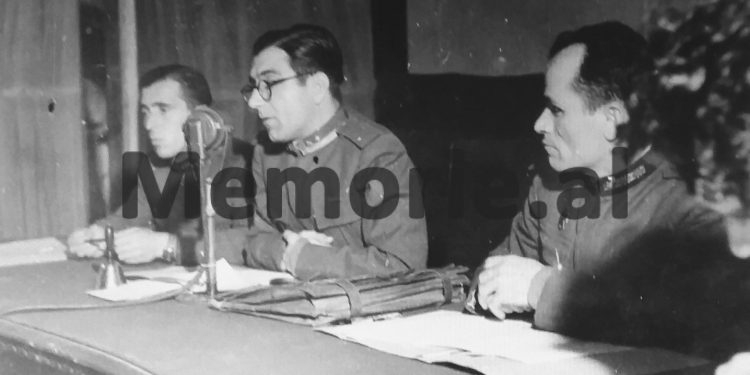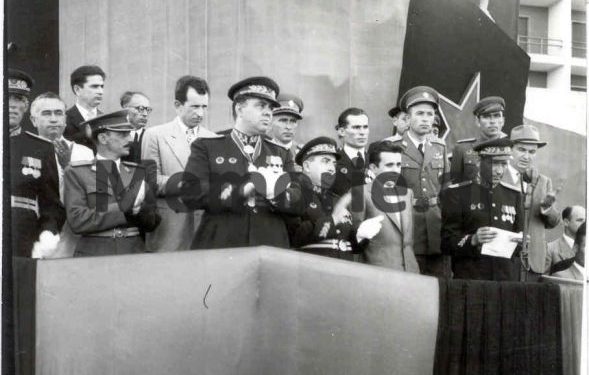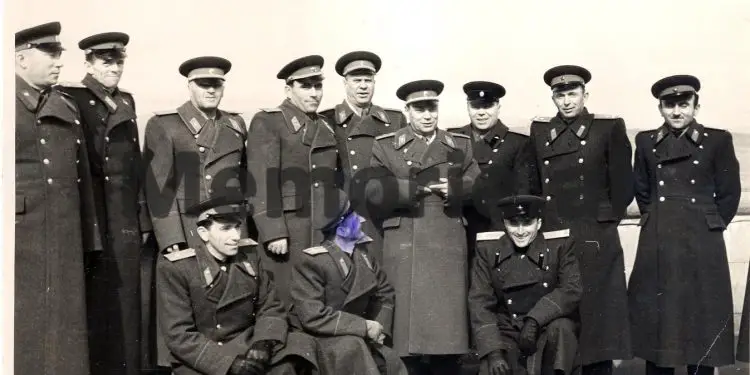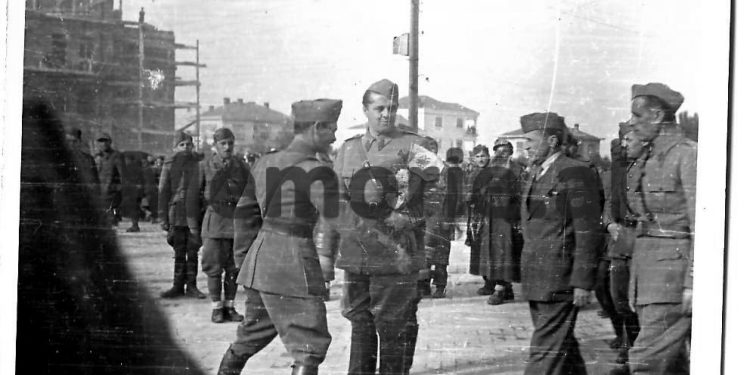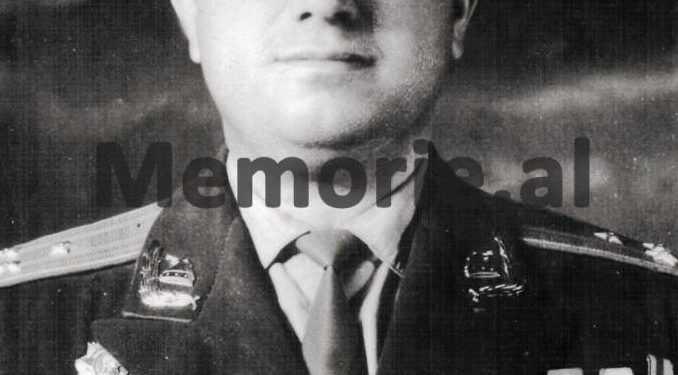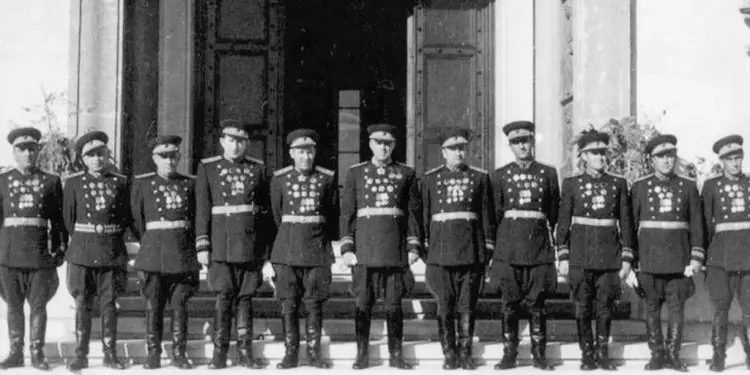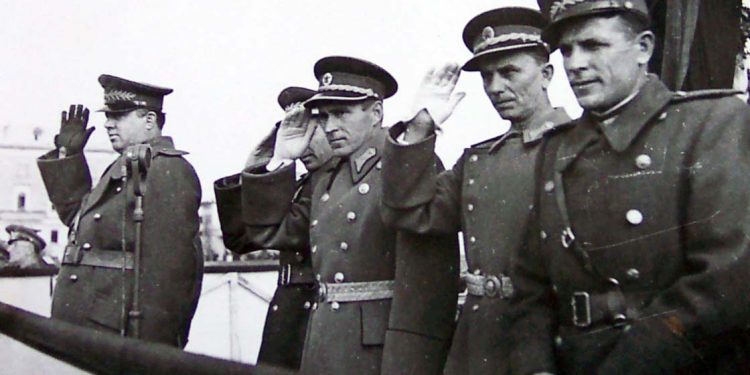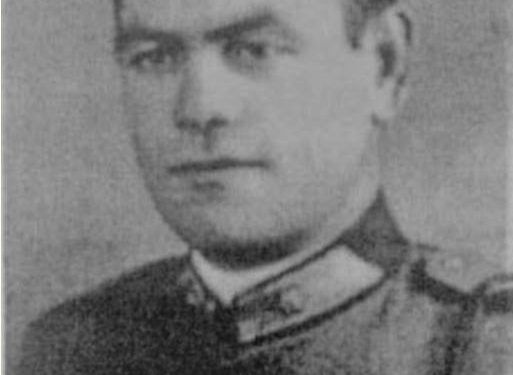Dashnor Kaloçi
Part nine
Memorie.al publishes the unknown story of Major General Panajot Plakut, originally from the village of Hoçisht in Devoll, Korça, who after graduating from the “Normal” school in Elbasan in 1936, returned to the city of Korça where he joined groups. communist and during the occupation of the country 1939-1944, he joined the Anti-Fascist Movement and for his activity was arrested and imprisoned by the Italian authorities in the city of Durres and after his release, he joined the partisan ranks, being appointed deputy commissioner of the First Assault Brigade commanded by Mehmet Shehu, since its formation in August 1943, in the village of Vidhkuq in Korça. How Panajot Plaku climbed the military career ladder after the end of the War, starting from Commissar and Division Commander in Korça District, Corps Commander, Director of Operational Directorate and Deputy Chief of General Staff of the Albanian Army in the Ministry of People’s Defense with rank and Major-General, Deputy Minister of National Defense for the Border Directorate, to the post of Minister without Portfolio in the government headed by Mehmet Shehu? How could Panajot Plaku escape from Albania in June 1957 (when he was acting Minister without Portfolio and Chairman of the State Committee for Geology) secretly crossing the state border near Lake Pogradec from the village of Lin and leaving for Yugoslavia? Where he settled in Belgrade as a political asylum and sent a letter to the leader of the Soviet Union, Nikita Khrushchev, denouncing all the crimes of Enver Hoxha and his regime?! The mystery of the death of Panajot Plaku in 1966 in the hotel where he lived in Belgrade and what he wrote in his memoirs about Enver Hoxha and the senior leadership of the ALP, which he summarized to be published in a book entitled ” Violence over the Revolution in Albania “, and after his death it was also translated into Serbo-Croatian (by Predrag Vuivivi,, editor of the newspaper” Borba “and Vela Popovi,, editor of Belgrade Television), a book that had a great echo and was later published by the Publishing House “Rilindja” of Prishtina in the Albanian language in 1985.
Followed by the last number
Memoirs of the former Minister without Portfolio, Major General Panajot Plaku, written in Belgrade in 1957-1966
Arrest of 27 delegates of the Tirana Conference!
On the occasion of the preparation of the list of candidates, behind closed doors in the register of delegates and in the III Congress of the Party, none of those participants entered the discussion, who during the first three days of the Conference criticized the weaknesses of Party leadership. Immediately after the Conference, 27 delegates were arrested, all of whom had spoken about the mistakes of the leadership of the Albanian Labor Party. They did not stay long in prison. When they were released, all were expelled from the Party and dismissed from office. However, a few days later, everyone was arrested again.
But on that occasion, along with them, many other delegates of the Tirana Conference were imprisoned, as well as a large number of other communists, who had not participated at all in its work. Among the prisoners were the then Deputy Minister of National Defense, Major General, Tahir Kadareja, the Commander of the Albanian Army Artillery, Major General, Hulusi Spahiu, Major General, Nexhip Vinçani, composer, Dhora Leka, Pëllumb Dishnica and many others. All those arrested were well-known communists and active fighters of the National Liberation movement.
As an illustration, we will provide some basic biographical information about the two arrested generals: Tahir Kadareja, has been a member of the Party since 1941. Before the war he participated in the so-called ‘Communist Group’ of officers. He took part in the well-known progressive uprising of Fier, in 1936. He was the founder and commander of the first partisan platoon in the district of Gjirokastra. During the War, he was one of the most beloved commanders of the Backyard units. He has been the deputy commander of the 1st Assault Brigade since its establishment, later the commander of the 6th Brigade and the commander of the 6th Division.
After the liberation he was the commander of the II Corps. In 1955, he successfully graduated from the Voroshilov Academy in Moscow. After returning from the Soviet Union he was the first Deputy Minister of People’s Defense. It can be said that he was the most capable military leader that the Albanian Army had.
Punishment of four generals!
Hulusi Spahiu is a well-known Albanian communist. He took part in the ‘Civil War’ of Spain. In the Internationalist Brigades he was the commander of the battery, then the commander of the Artillery Division and finally the commander of the Regiment. After returning to Albania in early 1943, he joined the Party and was appointed commander of the 3rd Brigade of the National Liberation Army. Under his command was organized one of the most excellent actions of the Albanian partisans. He was the commander of the Artillery, which in 1943, attacked and shelled the former Royal Palace in Tirana (today the ‘Palace of the Brigades’), where a meeting of the treacherous Parliament of that time was taking place. The date of this action was later taken as the ‘Artillery Day’ of the Albanian Army. After the liberation, he performed various responsibilities in the Army and at the end; he was Deputy Minister of National Defense and Commander of the Artillery of the Albanian Army.
The press at that time was silent about all the events at the Party Conference in Tirana. Not earlier than at the III Congress of the Albanian Labor Party, this was discussed. The opposition of the strongest organization of the Party in Albania was forced to be explained by the party secretary himself, the man to whom most of the accusations made at the Tirana Conference were addressed. Enver Hoxha stated that: in this conference was expressed the opposition of some elements originating from the bourgeois strata and the so-called intellectuals, not sound. Ignoring the fact that those who had discussed at the Tirana Conference were prominent communists, with good biographies as revolutionaries, Enver Hoxha attacked them as “ordinary traitors and adventurers”!
This speech of Enver Hoxha was also a threat to others, since the mood in the Party did not respond even close to the leadership. In his typical style, Enver Hoxha went so far as to declare that: it is in the interest of friendship between Yugoslavia, the elimination of similar phenomena in the Party. Warning of the continuation of terror and massive pressure, Enver Hoxha noted that: The party will ruthlessly trample all enemies, regardless of whether someone will think that democracy has been violated, that the freedom of speaking etc. All these measures will be in the maximum interest of the Albanian Labor Party.
As part of the reprisals after the Tirana Conference, half of 1956 passed and the old revolutionaries, Liri Gega and Dali Ndreu, were arrested after a quick and short trial, sentenced to death and shot. Liri Gega was co-opted into the Provisional Central Committee in April 1942. She was later elected a member of the Political Bureau of the Central Committee of the SNP. She was the deputy commissioner of the 1st Assault Division, and on the occasion of the transfer of the units of the National Liberation Army from southern Albania to northern Albania, she was a functionary of the Party for the whole of Northern Albania.
She was the first president of the Anti-Fascist Women’s Front of Albania. There is no doubt that Liri Gega was not only the oldest communist in the ranks of women in Albania, but also one of the most prominent intellectuals in the country. Dali Ndreu belonged in the pre-war period, to the progressive “Group of Officers” together with Bedri Spahiu, Tahir Kadare, Shefqet Peçi, etc. He was a participant in the Fier uprising in 1936. A member of the Communist Party of Albania since its establishment and in March 1943, at the First National Conference of the country, he was elected a member of the Central Committee of the SNP. He was the leader, chairman of the National Liberation Movement in Albania and his family; he was one of the biggest supporters of the National Liberation Movement in Peshkopi!
He is one of the first generals of the Albanian Army. He was the commander of the first partisan division, and on the occasion of the transfer of partisan military units from the South to the North, he was entrusted with the responsibility for military affairs in Northern Albania. After the war he was the chief of the Background Service in the Albanian General Staff. After the elimination of Liri Gega and Dali Ndreu, they were officially informed that: they were sentenced to death as traitors of the Party and the people and that, allegedly, they were caught somewhere near Kukës, where they allegedly intended to flee across the border! In fact, they were arrested, tortured, convicted and shot in Tirana!
Who organized the Tirana Conference?
The Tirana Party Conference created an extremely serious impression, not only on the communists of the capital, but also on the whole Party, despite the fact that the party members were not objectively informed about it. Precisely for this reason, the Party leadership could not remain silent even further, about this important event. Towards the end of 1957, the leadership of the Albanian Labor Party declared that the Tirana Conference was “the work of the Yugoslav revisionists and their agent, Panajot Plakut”, and that means my work too!
I must say in this case, that I have many arguments that I did not participate in the organization of the Tirana Party Conference. It is quite clear that by giving me this role, they actually intended to divert attention from the real motives of this mass protest, against the leadership of the Party, from the dissatisfaction of the members and the leading cadres, with the politics of the leader’s highest party and state. Before the Tirana Conference, I left Albania for North Korea. I stayed a few days in Moscow. One day I was urgently invited to the Albanian embassy. There I found the members of the Politburo, the Central Committee, Spiro Kolekë and the candidate for member of the Central Committee, Vito Kapon, very worried.
From their concern, I created the impression that revolution had broken out in my country. I was told that at the Tirana Conference, almost all the delegates had criticized the leadership that they had raised vigorously against it and against the party line so far. I was told that it is especially worrying that the attacks against the leadership did not stop even when Enver Hoxha and Mehmet Shehu came to the Conference, and that the situation was so tense that Lir Shurdhi and Adnan Qatipi were ordered to leave the Conference and to keep a tank battalion on standby to intervene as soon as possible, if necessary.
On this occasion I heard for the first time about the events at the Tirana Conference, between China and Albania. How absurd was the accusation that the Tirana Conference was “my work” is proved by the fact that the III Congress of the Albanian Labor Party was held after intensive investigations and after the elimination of a large number of senior officials of the Party and of the State. This is clear evidence that it was, in fact, an expression of the spontaneous resistance of the Albanian communists against bureaucratization and terror, which was applied by the closest leadership group.
At the III Congress of the ALP, Enver Hoxha, proposing me a member of the Central Committee, spoke superlatively about my qualities. He even said that I am the only person in Albania who has read all the works of Lenin. The accusations are also refuted by the fact that in the Congress, in which all the top leaders voted, and this means all those who were well informed about the Tirana Conference and its background, I won one hundred percent of voting. Finally, the last fact that refutes the mentioned statement is the fact that Enver Hixha and Mehmet Shehu did not deport me from Albania, but I, of my own free will, decided to flee to Yugoslavia.
This escape was published in the press after more than ten days, and this is definitely characteristic because, when I left, I was a minister of the Albanian government. I considered it necessary with these arguments, to refute the accusations about my role as “organizer” in the Tirana Conference, precisely because I see that they are intended, allegedly my betrayal, in fact, to disguise the real mood of my comrades, the communists and the patriots of Albania. All the arrests and eliminations after the Tirana Conference were, in my opinion, in fact, preventive measures. As for the internal situation, they were reactions to the phenomenon of open mass dissatisfaction, of the old tried cadres and of all the people who thought with their heads.
As for external factors, the leaders of Albania were panicked that the open action against Stalinism would not erupt in Albania as well, as had happened in some socialist countries (in the Democratic Republic of Germany, in Poland and Hungary). After Stalin’s death, a new atmosphere prevailed in the ranks of the Party. Having endured the despotism of Enver Hoxha for years, the members of the Party considered that the time had come to settle accounts with the serious phenomena of bureaucracy and that democratization be applied again as the main method of life and action of the Albanian Labor Party. . However, such an atmosphere did not suit Enver Hoxha and Mehmet Shehu. They rightly feared that the wave of reckoning, bureaucratization and violence would inevitably wipe them out themselves./Memorie.al




